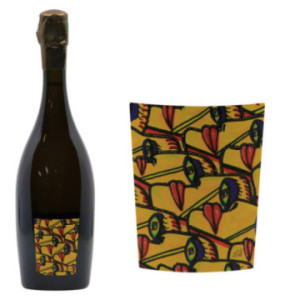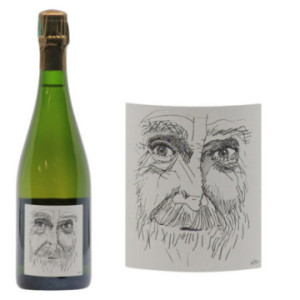
- -10%
-
Stroebel Brut Nature Logos Blanc Les Hazardes 2015

- -10%
-
Stroebel Brut Nature Héraclite Sous Bois 2018
A Family Legacy and a Return to Authenticity
Champagne Timothée Stroebel is deeply rooted in family heritage. Originally from Alsace, the Stroebel family settled in Champagne after World War II. In the 1960s, Timothée's grandfather planted the first vines in Villers-Allerand, a Premier Cru village in the Montagne de Reims. After studying oenology and gaining experience in Burgundy, Timothée took over the estate in the early 2000s, driven by a desire to return to traditional and organic viticulture. His philosophy is centered on crafting champagnes that express the purest essence of their terroir, without compromise.
Organic Farming and a Respect for Nature
Timothée Stroebel has embraced organic and biodynamic viticulture, ensuring that each vineyard is cultivated with the utmost respect for biodiversity. Since 2008, he has eliminated synthetic treatments, replaced by natural composts and herbal infusions. The estate, certified organic since 2014, spans parcels with diverse soil compositions—from deep clay to sandy and chalk-rich plots—each contributing to the complexity of his champagnes. The vines are carefully tended by hand, and cover crops are used to promote soil health and microbial life.
Single-Vineyard Cuvées That Reveal the Terroir
Timothée Stroebel’s champagnes are crafted with a deep commitment to authenticity. His signature cuvée, “Triptyque”, is a unique blend of Pinot Noir, Pinot Meunier, and Chardonnay from three distinct vineyard sites, each with varying soil compositions. Aged in large oak barrels, it undergoes natural fermentation with indigenous yeasts and is bottled without dosage, offering a pure and unfiltered expression of its terroir. The result is a champagne of remarkable depth, structure, and vibrant minerality.
A Natural Winemaking Philosophy
At Champagne Timothée Stroebel, the winemaking approach is centered on minimal intervention. The fermentation occurs spontaneously using indigenous yeasts, without added sulfites, fining, or filtration. Aging takes place in neutral oak barrels, allowing for subtle micro-oxygenation that enhances complexity while preserving freshness. Each champagne is a reflection of the vineyard’s ecosystem, evolving naturally to express the nuances of the land.
A Champagne House of Rare Elegance
With a limited annual production, Timothée Stroebel’s champagnes are highly sought after by connoisseurs and sommeliers worldwide. Found in select fine dining establishments and wine boutiques, these wines captivate with their precision, depth, and distinctive identity. His commitment to organic viticulture and traditional craftsmanship has positioned him among the most respected artisanal producers in the Montagne de Reims, where each bottle tells a story of passion, patience, and respect for the land.















